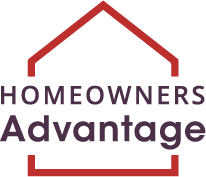
FHA Loans Help Millions Who Need Help with Down Payments
Qualified borrowers enjoy affordable financing, low down payment requirements, and competitive mortgage rates
FHA home loans have been around since the 1930s, and it's no wonder why they've stood the test of time. FHA mortgage lenders offer affordable financing, low down payment requirements, and competitive mortgage rates to those who qualify. Additionally, existing homeowners can take advantage by refinancing their current mortgage into an FHA loan.
An FHA loan is a federal assistance mortgage loan that’s insured by the Federal Housing Administration (FHA). The FHA provides this mortgage insurance to specific FHA-approved lenders throughout the United States, including Homeowners Advantage, for single-family and multifamily homes. FHA is the largest insurer of mortgages in the world and has insured over 46 million properties since its inception in 1934. Originally created to regulate interest rates and mortgage terms, the agency allows approved banks to continuously issue loans without putting out substantial capital of its own.
Homeowners and borrowers who utilize FHA loans pay a fee, known as the FHA's mortgage insurance premium (MIP). The FHA is the only government agency that operates on self-generated income. In return, FHA stimulates the housing markets and community developments considerably by providing affordable financing to homeowners across the nation.
FHA demand diminished during the 1990s as home prices increased significantly and lenders developed more enticing products. Many lenders surpassed the FHA low down payment requirement by providing 100 percent financing to qualified buyers. In addition to such offerings, many lenders began to loosen their loan qualifications significantly.
Recently, FHA loans have grown in popularity again as their mortgage limits have been modernized and other financing alternatives have been severely limited. Especially due to the subprime market fallout, FHA mortgage lenders have since filled the void for low-to-moderate income borrowers and individuals with less-than-stellar credit. It is worth noting that FHA home loans are nowhere near as toxic as the popular subprime mortgages of recent years. Fortunately, FHA lenders have always required strict documentation from borrowers and primarily issue low, fixed-interest rate home loans.
Remember, the FHA does not originate loans themselves. Instead, they insure loans made by select private lenders. To obtain an FHA loan, the first step is to locate an FHA-approved mortgage lender. These lenders can then set their own rates and terms. The mortgage lender will need to qualify you under a set of specific loan guidelines. From this point forward, obtaining your FHA home loan will be as simple as most other mortgages.
FHA mortgages are a good option for first-time homebuyers, members with low down payments, or those with less-than-perfect credit. FHA loan highlights include down payments as low as 3.5%, with sellers able to contribute up to 6% toward closing costs and prepayables. The Consumer Financial Protection Bureau has more information about the pros and cons of FHA loans.


